Opioid Pain Medications

Opioid pain medicine plays a crucial role in managing acute and chronic pain, offering relief to millions of people worldwide. Derived from natural and synthetic sources, these medications work by binding to specific receptors in the brain, altering the perception of pain. While they can provide significant benefits, the potential for misuse and addiction poses serious challenges. Understanding the balance between effective pain management and the risks associated with opioids is essential for healthcare providers and patients alike.
Brief Overview Of Opioid Pain Medicine
Opioids are a class of drugs that either derive from or mimic natural substances found in the opium poppy plant. These medications are primarily used in medicine for their powerful pain-relieving properties [1].
Opioids work by binding to specific receptors in the brain, leading to a reduction in the perception of pain and an increase in feelings of well-being. This makes them an effective option for managing acute and chronic pain.
Common Medical Uses For Opioid Pain Relief
Opioid medicines are often the first choice for moderate to severe acute pain, such as post-surgery pain.
Prescription opioid medicines, when used as prescribed by a doctor, can relax the body and offer pain relief. It is prescribed for moderate to severe pain from the following conditions-
- Severe pain due to trauma or disease
- Fibromyalgia
- Neuropathic pain
- Cancer-related pain
Types Of Opioid Pain Medications
Opioid pain medications can be classified into several categories based on their chemical structure, mechanism of action, and formulation. Here are the main types:
Natural Opioids
Natural opioids include substances such as codeine and morphine, which are derived from the opium poppy plant [2].
Morphine is often used for severe pain, whereas Codeine, which is milder than morphine, is often used for moderate pain and as a cough suppressant.
Semi-Synthetic Opioids
- Hydrocodone: Used for moderate to severe pain, often combined with acetaminophen or ibuprofen.
- Oxycodone: Available in various formulations (e.g., immediate-release and extended-release) for moderate to severe pain.
- Buprenorphine: Used for pain management and as part of addiction treatment; has a ceiling effect that reduces the risk of overdose.
Synthetic Opioids
Fentanyl
It is a potent synthetic opioid medicine. It is about 50 to 100 times more potent than morphine [3].
Tramadol
Tramadol, available under the brand name Ultram, is used to treat moderately severe pain. When administered by mouth, it works within 1 hour of intake [4]. It is also available in combination with pain reliever acetaminophen for better results.
Methadone
Methadone, available under the brand names Dolophine and Methadose, is a synthetic opioid pain medication that is used for chronic pain [5]. It is also used to treat heroin dependence in patients. The use of Methadone can reduce withdrawal symptoms and cravings [6].
Tapentadol
Tapentadol is a centrally-acting opioid medicine with a dual mechanism of action. Tapentadol pain medicine works within 30 minutes of intake and is available in two formulations. Immediate-release (IR) tablets are prescribed for acute pain and work for 4 to 6 hours. Some commonly prescribed IR options include Tapaday 100mg, Topcynta 100mg, and Aspadol 100mg tablets.
Tapentadol Extended Release (ER) tablets, on the other hand, provide long-lasting pain relief by gradually releasing the medication over time. They are ideal for managing chronic pain conditions such as diabetic neuropathy and fibromyalgia.
Importance Of Understanding The Risks
While opioids can be highly effective, their use requires careful management due to the potential for side effects and the risk of dependence or addiction. Healthcare providers typically prescribe opioids when other pain relief methods are insufficient, ensuring that they are used safely and responsibly.
Some of the potential health risks of taking opioid pain medicine include overdose, withdrawal symptoms, and dependency.
Understanding Opioid Overdose
Approximately 60 million people globally use opioids, which significantly raises the risk of overdose. In 2019, drug use was responsible for around 600,000 deaths worldwide, with nearly 80% linked to opioids. About 25% (about 125,000) of these fatalities resulted specifically from opioid overdoses, according to the World Health Organization (WHO).
Opioids can impact the brain’s respiratory control center, potentially leading to fatal consequences.
An overdose can be recognized by three key signs:
- pinpoint pupils
- loss of consciousness
- difficulty breathing.
It is important to note that non-fatal overdoses occur far more frequently than those resulting in death. The rise in opioid overdoses in recent years can be attributed to increased access to opioids for chronic pain management and its availability in the illicit market.
In the United States, drug overdose deaths reached 70,630 in 2019, with approximately half involving synthetic opioids [7].
Steps To Take If An Overdose Is Suspected
|
Signs Of Dependence And Addiction
Dependence occurs when the body adapts to the presence of opioids, leading to withdrawal symptoms when the drug is not taken.
Warning signs to watch for is tolerance, where more of the drug is needed for the same effect.
Symptoms of Opioid addiction include-
- Cravings
- loss of control over use
- continued use despite negative impacts on personal life and health
- neglecting responsibilities.
If you or someone you know is struggling with opioid dependence or addiction, seeking professional help is crucial. Recovery is possible with the right support and treatment.
Opioid Withdrawal Symptoms
Opioid withdrawal may occur when a patient abruptly ceases or reduces the intake of the medication. It is more common in people who misuse the medication or take it for a prolonged period without medical supervision [8].
The opioid withdrawal symptoms include-
- Insomnia
- Muscle cramps
- Anxiety
- Watery discharge from eyes and nose
- Nausea
- vomiting
- Hot and cold flushes
- Perspiration
- Diarrhea.
Tips For Safe Usage
|
Side Effects & Warnings
Common side effects of opioid use include dizziness, sedation, nausea, vomiting, constipation, tolerance, and respiratory depression [9].
Less common side effects may include-
- delayed gastric emptying
- Hyperalgesia
- Myoclonus (sudden and involuntary muscle twitching).
- muscle rigidity
- immunologic and hormonal dysfunction
Alternatives To Opioid Pain Management
Some of the effective non-opioid pain relief options include-
| Non-Opioid medications | Description |
| Acetaminophen (Tylenol) | It helps to relieve mild to moderate pain and treats headaches, muscle aches, arthritis, backache, toothaches, colds, and fevers [10]. |
| Non-Steroidal: Anti-Inflammatory Drugs (NSAIDs): Aspirin, Ibuprofen | It relieves mild to moderate pain while helping to reduce swelling and inflammation. However, regular use of NSAIDs may raise the risk of stomach issues and increase the likelihood of bleeding. |
| Nerve Pain medications: Gabapentin and Pregabalin | These medications are used to relieve nerve pain by modulating nerve signals, helping to reduce discomfort and improve quality of life. |
| Behavioral and Mental Health Therapies | Behavioral and mental health focus on identifying and treating disorders or substance abuse issues. These therapies may take time but are essential for comprehensive pain relief. |
Conclusion
Opioid pain medications play a critical role in managing severe pain, particularly in cases where other treatments are ineffective. However, their use comes with challenges, including the risk of addiction, tolerance, and potential overdose.
It is essential for healthcare providers to prescribe these medications cautiously, considering alternative pain management strategies and closely monitoring patients for signs of misuse.
Opioid Pain Medications Options At IyrinHealth Care
FAQs
What is the strongest opioid pain medicine?
Which opioid pain medicine is good for nerve pain?
When are opioids prescribed?
What is the importance of monitoring while on opioids?
Are opioid pain medications addictive?
What is the difference between acute and chronic pain management with opioids?
Can opioids be combined with other medications?
References
- Opioid, wikipedia.
- What to know about natural opioids, medicalnewstoday.
- Fentanyl - StatPearls - NCBI Bookshelf.
- Tramadol, Wikipedia.
- Methadone, Wikipedia.
- Methadone maintenance treatment - NCBI.
- Opioid overdose, WHO.
- Withdrawal Management, NCBI.
- Opioid complications and side effects, PubMed.
- Alternatives to opioids, floridahealth.

 info@iyrinhealth.com
info@iyrinhealth.com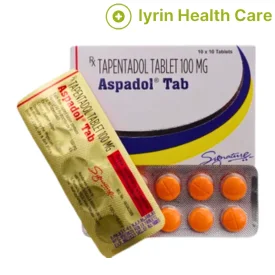
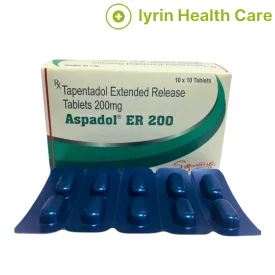
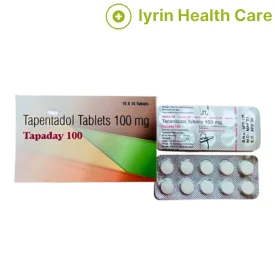
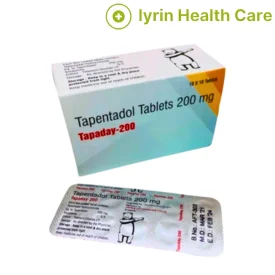
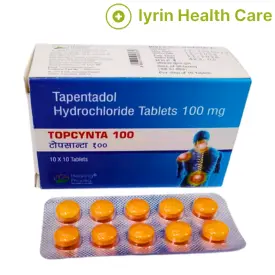
 How Long Does Tapentadol Stay In Your System?The half-life of Tapentadol IR is around 4 hours, whereas that of Tapentadol ER is 6 hours. Based on the half-life of the medication, Tapentadol IR stays in your system for 20 to 22 hours, whereas the ER
How Long Does Tapentadol Stay In Your System?The half-life of Tapentadol IR is around 4 hours, whereas that of Tapentadol ER is 6 hours. Based on the half-life of the medication, Tapentadol IR stays in your system for 20 to 22 hours, whereas the ER


